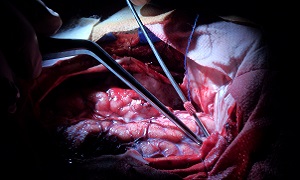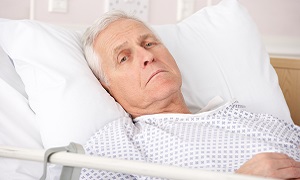Best Doctors in India for Deep Brain Stimulation
Here are the most reputed neurosurgeons in India expertised in Deep Brain Stimulation (DBS) procedure for the treatment of movement disorders like Parkinson’s disease (PD), essential tremor, dystonia, and other neurological conditions.
Best Hospitals in India for Deep Brain Stimulation
- City: Bengaluru, India
Hospital Highlights:
- Fortis Hospital Bannerghatta, Bengaluru was established in 2006.
- The hospital is a 276 bedded multi-specialty tertiary care facility.
- The hospital specializes in cutting-edge medical technology and dedicated patient care services.
- The hospital is equipped with state-of-the-art technologies like trans-radial angioplasty, trans-abdominal cardiac surgery, and computerized TKR navigation surgery.
- The hospital provides specialty medical services in cardiology, cardiac surgery, orthopedics, neurology, neuro-surgery, GI, and Minimal Access Surgery (MAS).
- City: Chennai, India
Hospital Highlights:
- Fortis Malar was established in 1992 and was formerly known as Malar Hospital.
- The hospital specializes in cutting-edge medical technology and dedicated patient care services.
- The hospital is multi-specialty, tertiary care facility with 180 beds.
- The hospital offers comprehensive medical care in specialties such as cardiology, cardio-thoracic surgery, neurology, neurosurgery, orthopedics, nephrology, gynecology, gastroenterology, urology, pediatrics, and diabetes.
- City: New Delhi, India
Hospital Highlights:
- Established in 1996, Pushpawati Singhania Research Institute is one of the top hospitals in the NCR region, as well as one of the top facilities in India for gastroenterology. The hospital is one of South Asia’s first institutes in medical and surgical treatment for diseases related to digestion.
- The hospital is equipped with state-of-the art facilities coupled with the latest equipment as well as renowned consultants from various parts of India as well as other parts of the world.
- City: New Delhi, India
Hospital Highlights:
- State-of-the-art technology and devoted healthcare professionals have been brought together under one roof at Venkateshwar Hospital to provide genuine medical care. The hospital’s professionals work together as a team to deliver the best possible treatment to their patients, using the most sophisticated equipment and information technology.
- Venkateshwar Hospital’s mission is to attain global excellence in healthcare by employing evidence-based, ethical clinical practices and cutting-edge technology by a team of highly skilled experts.
- City: New Delhi, India
Hospital Highlights:
- Sir Ganga Ram Hospital, New Delhi is known to provide the latest medical procedures with the latest technology in all of its units.
- The hospital has a team of reputed doctors, nurses, and healthcare professionals that ensure that patients receive quality care at affordable costs.
- Staffed with a team of highly qualified doctors, dedicated nurses, and paramedical and non-medical staff, the hospital aims to lead in healthcare delivery, medical education, training, and research.
- As per the vision of the founder, the hospital also provides free treatment to the economically weaker sections of society.
- Sir Ganga Ram Hospital also provides training to young doctors under the Diplomate in National Board(DNB) program. The DNB program at the hospital was started in 1984 and it is known for currently running the maximum number of DNB specialties in the country. It also has the distinction of having the first bone bank in India.
- City: Kerala, India
Hospital Highlights:
- Established in 2019, Apollo Adlux Hospital is the first Apollo Hospital in Kerala and the 73rd hospital owned by Apollo Group in India. With the state’s most advanced, comprehensive healthcare infrastructure and cutting-edge technologies, Apollo Adlux Hospital stands as an example of medical excellence in Kerala.
- With over 34 multi-specialty departments, the hospital believes in providing the best quality treatment to its patients at affordable rates, ensuring comfort at their difficult times.
- The 300-bed hospital is managed by a team of highly qualified and experienced experts who delivers exceptional hospitality to their patients and treats them with great compassion.
- With its affiliation with the Apollo Hospitals Group, the hospital aims in providing patients with top-notch healthcare services while also serving communities in Kerala.
- The hospital has good railway and road connections, and is conveniently close to Cochin International Airport.
- City: Gurugram, India
Hospital Highlights:
- Situated near DLF Cyber City, Gurugram, Narayana Superspecialty Hospital is one of the top medical facilities in the Delhi NCR region, catering to the needs of the people. Known for its commitment to quality medical care and patient service, the hospital is a state-of-the-art facility with planned and well-equipped sections, which includes a spacious OPD area as well as comfortable patient rooms.
- It is the closest super-specialty hospital from Indira Gandhi International Airport towards Gurugram, and also the nearest super specialty hospital from DLF Cyber City. It is also close to major residential areas in Gurugram.
- It is part of the renowned Narayana Health Group. Established in 2000, by Dr. Devi Shetty, a renowned cardiac surgeon, it has grown to be one fo India’s leading healthcare groups.
- City: Noida, India
Hospital Highlights:
- Fortis Hospital, Noida, stands as one of the oldest and most trusted healthcare institutions in the region, setting a benchmark for comprehensive medical care.
- As the second mega hub hospital in the Fortis Healthcare Group, Fortis Hospital, Noida, upholds a legacy of trust among more than 1.2 million patients. By integrating top-tier professionals with cutting-edge technology, the hospital delivers superior treatment across various medical disciplines.
- Specializing in advanced Neurosciences, Orthopedics, Kidney and Liver Transplant Programmes, Fortis Hospital, Noida has successfully performed over 1,500 transplants, solidifying its reputation as a leader in specialized medical interventions.
Deep Brain Stimulation
Deep brain stimulation is an elective surgical procedure, which involves implanting electrodes in certain areas of the brain. These electrodes or leads help in generating electrical impulses for controlling any abnormal activity in the brain. The electrical impulses can also adjust for any chemical imbalance within the brain which can lead to various conditions. A programmable generator resembling a pacemaker placed under the skin in the upper chest controls the stimulation of brain areas.
Deep brain stimulation has been approved for treating several conditions which include dystonia, epilepsy, essential tremor, Parkinson’s disease, and obsessive-compulsive disorder. Currently, it is also being studied as a potential treatment for addiction, chronic pain, cluster headache, dementia, depression, stroke recovery, multiple sclerosis, Huntington’s disease, Tourette syndrome as well as traumatic brain injury.
Purpose
Deep brain stimulation is an established treatment for people who are suffering from movement disorders, which can include essential tremor. Parkinson’s disease and dystonia, and psychiatric conditions such as OCD are few other ailments which can be treated by this procedure.
This treatment is reserved for the people who are unable to control their symptoms with the use of medications.
Preparation
Since deep brain stimulation is a serious as well as a risky procedure you need to weigh the pros and cons carefully, along with your doctor, even if you are considered eligible for the procedure.
Before the surgery, you will require a few medical tests for making sure that deep brain stimulation is safe and appropriate for you. You will also require brain-imaging studies such as an MRI, before your surgery to map the areas of your brain to implant the electrodes.
Procedure
The surgery for deep brain stimulation has two portions.
Brain surgery
For the brain surgery portion, the surgery team will fit you with a special head frame so that your head is still during the procedure. Then, team members will use magnetic resonance imaging (MRI) in order to map your brain. This will allow them to identify the areas in your brain where they will need to place the electrodes.
The surgery can be performed under general anesthesia or local anesthesia. If local anesthesia is used, it will numb your scalp before the procedure. However, you will not need an anesthetic inside your brain as it has no pain receptors.
Your surgeon will be implanting a thin wire lead with a number of contacts or electrodes at the tips into a specific area in your brain. He/she might also implant one lead into each side of your brain. Then a wire will run under your skin to a pulse generator which will be implanted near your collarbone.
During the surgery, your brain will need to be closely monitored by the surgeon and the neurologist, to help ensure correct electrode placement.
Chest wall surgery
During the second portion of your surgery, the surgeon will implant the part of the device containing the batteries under your chest’s skin, near the collarbone. During this procedure, general anesthesia will be used. Wires from your brain electrodes will be placed under your skin. They will then be guided down to the battery-operated pulse generator. This generator will be programmed to send continuous electrical pulses to the brain. You will be controlling the generator and you are also able to turn it off using a remote control.
After the procedure
The pulse generator in your chest will be activated in your doctor’s office a few weeks after your surgery takes place. Using a special remote control, the doctor will easily be able to program your pulse generator from outside your body. The amount of stimulation will then be customized to match your condition. Finding the optimal setting can take a few hours.
Depending on your condition, your doctor will advise you whether you need stimulation constantly running 24 hours a day, or you need to turn off the pulse generator at night before sleeping. The special remote control which you will receive from your doctor can help you turn the stimulation on and off. Your doctor may also program the pulse generator to let you make any minor adjustments at home.
Your generator’s battery life can vary with usage and settings. When your battery needs replacement, your surgeon will replace the generator during an outpatient procedure.
It is important to note that this procedure will not be curing your disease, but it can provide help in lessening your symptoms to a great extent. If this procedure works, your symptoms will be improving significantly. However they don’t go away completely and in some cases, you might still need medications for certain conditions. It is also noteworthy that this procedure isn’t successful for anyone. Before your surgery, it is important to talk with your doctor regarding the benefits, risks, and expectations.
Advantages
This procedure can be performed on either side of your brain, depending on your symptoms. For each patient’s clinical status, the effects can be customized individually for each patient’s clinical status.
The device can help to provide continuous symptom control 24 hours a day. If one sees side effects, stimulation settings can be modified to diminish them.
Risks
Deep brain stimulation is a minimally invasive surgery and is generally considered safe. However, like any other surgery, it has a risk of a few complications.
The first surgery involves creating small holes in the skull for implanting the electrodes, and the second surgery involves implanting the device with batteries under the skin in the chest.
Complications of surgery might include:
- Misplacement of lead
- Stroke
- Infection
- Bleeding in the brain
- Breathing problems
- Heart problems
- Seizure
- Nausea
Side effects that are associated with deep brain stimulation include seizure, infection, headache, difficulty in concentration, temporary pain and swelling at the implantation site, etc.
The device will be turned on a few weeks after your surgery, and the process of finding the best settings will begin. Though some of the settings can cause side effects, most of them can improve with further adjustment of the device.











